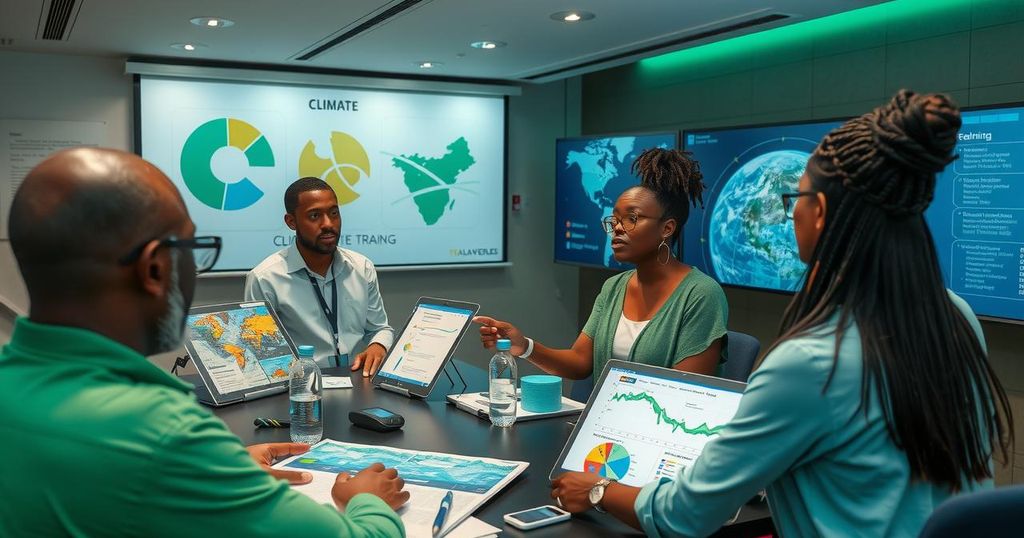The 2024 World Agri-Food Innovation Conference in Beijing highlighted the urgent need for a green transition in global agriculture to combat climate change. Experts emphasized the critical role of technological innovations and sustainable practices to mitigate food production disruptions caused by unpredictable weather patterns. The discussion pointed towards China’s efforts to enhance food security and reduce carbon emissions while promoting international collaborations.
The 2024 World Agri-Food Innovation Conference (WAFI 2024), hosted in Beijing, has seen global agriculture experts advocating for an innovative approach toward a green transition in the agri-food sector. This is deemed essential to reduce carbon emissions and lessen the adverse effects of climate change on agricultural production. Despite some regions experiencing initial benefits from rising temperatures, the experts acknowledge increasing unpredictability in weather patterns, which is adversely affecting global agriculture, particularly in regions such as Asia, Africa, and South America. Sun Qixin, the president of China Agricultural University, highlighted the critical need for technological advancements, warning that food production could plummet by 6 to 8 percent for every degree Celsius increase in global temperatures unless innovations are adopted. He emphasized the uneven impact of climate change across different regions and the necessity for reduced agricultural inputs without compromising output. Fu Wenge, also from China Agricultural University, pointed out that beneficial innovations do not always require groundbreaking research; often, modest and cost-efficient managerial reforms can effect substantial improvements. He referenced the Science and Technology Backyard project, which fosters practical education by encouraging students to collaborate with smallholder farmers in rural settings to promote high-yield varieties and sustainable practices. Ismahane Elouafi, the executive managing director of CGIAR, argued for a comprehensive approach to innovation, encompassing technological, policy, and institutional changes to build a resilient agricultural system. Patrick Caron, CGIAR’s vice-chair, noted the historical successes in food production but stressed the present need to prioritize ecological sustainability in food systems. The panel underscored the importance of increased food production while minimizing the carbon footprint and protecting the environment. China was identified as a hopeful leader in this endeavor, aiming to boost its food production capacity to approximately 700 million metric tons by 2030, reflecting its commitment to food security amidst global challenges. On World Food Day, Chinese officials reiterated their dedication to global food security and the importance of continuing international cooperation to combat hunger.
The article discusses the urgent necessity for the agri-food sector to embark on a green transition as a means to mitigate climate change impacts and reduce carbon emissions. As the world grapples with the challenges posed by shifting climatic conditions, the agricultural community emphasizes the importance of innovation and sustainable practices. Global panelists, including noted experts from China Agricultural University and CGIAR, convened at the WAFI 2024 conference to address these issues in detail, focusing on both technological and managerial innovations necessary for achieving food security and reducing environmental footprints.
In conclusion, the call for a transformation towards a green transition in the agri-food sector is underscored by the threats posed by climate change. Experts urge for innovation in both technology and management practices to sustain food production while minimizing ecological impacts. China’s proactive initiatives in food production and international cooperation efforts position it as a leader in addressing global food security challenges. The insights shared during WAFI 2024 provide a blueprint for the future of sustainable agricultural practices worldwide.
Original Source: en.people.cn




